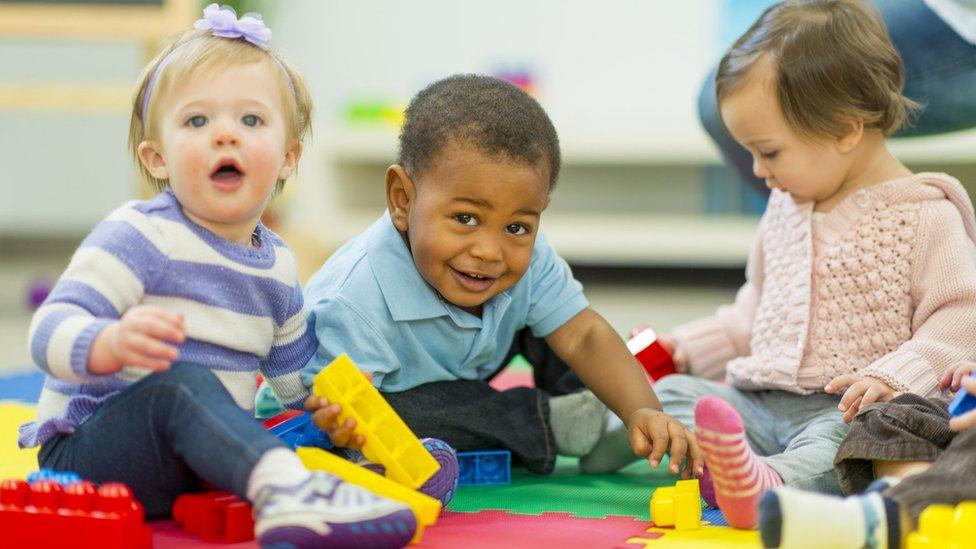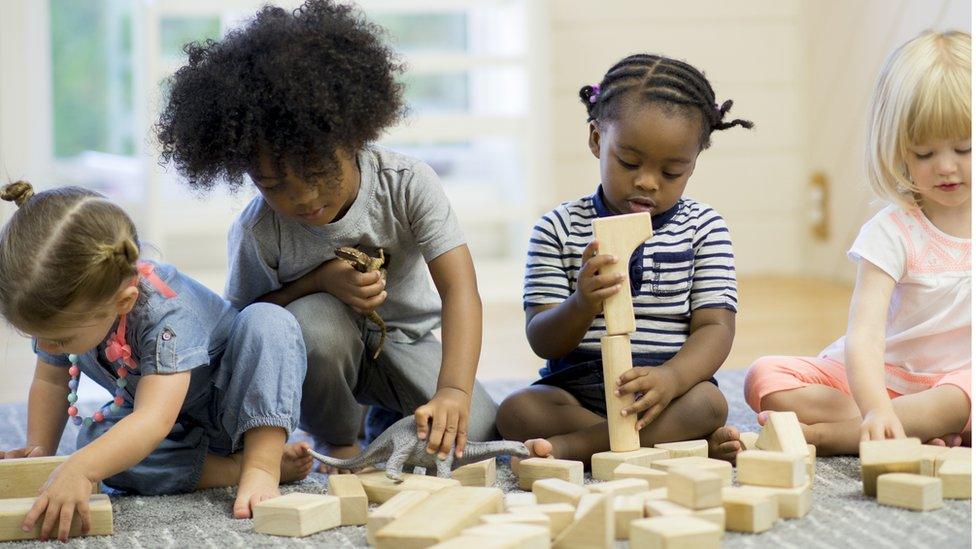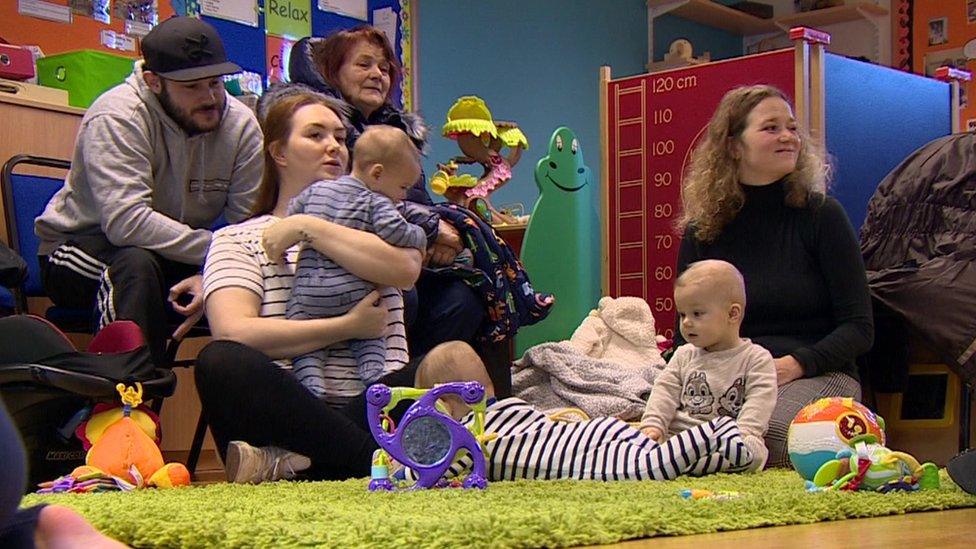Children's centre closures may be as high as 1,000, says study
- Published
- comments

Sure Start was aimed at families with pre-school age children
As many as 1,000 Sure Start children's centres in England may have closed since August 2009, research for the Sutton Trust suggests.
In the remaining centres, services for families are "hollowed out" and no longer within "pram-pushing distance".
The report says there were 3,632 centres in 2009, with official data showing 509 of these have now closed - but it says this is an "underestimate".
The government says it is determined to improve early years provision.
The Sure Start children's centre initiative was introduced in 1998 by the then Labour government, with the aim of bringing services for young children and their parents together under one roof.
Initially the scheme was focused on the most disadvantaged areas of England, but it was later extended to all areas.
The Sutton Trust's report, Stop Start, external, carried out by academics at Oxford University, says that while a national database records a 14% drop (from 3,632 to 3,123) in centre numbers, this "understates the true picture".
It says its own research data is "more up-to-date and complete than the official figures" because it draws on a detailed survey of local authorities and takes into account that some centres are satellite sites.
It says: "There is no clear definition of a children's centre, with a large number of 'linked sites' counted by some authorities but not by others.
"Many closures announced locally were not yet reflected in the database: our survey showed a 16% drop.
"If we only count 'registered centres', the drop since 2009 was more than 30%, suggesting that more than 1,000 centres nationally might have closed."
Postcode lottery
The report also says closure rates vary across the country, creating a postcode lottery of provision, with more local authorities preparing to make cuts in the coming financial year.
The researchers asked local authorities why provision had been cut back and found 84% cited financial pressures.
It says the situation means there has been a move away from the original concept of an open access neighbourhood centre, "shifting the balance too far towards referred children and families".
The research also calls for a review of children's centres, promised by the Department for Education, to be completed.

Lead report author Professor Kathy Sylva said: "Our national survey of local authorities found wide variation in level of closures and in number of services on offer.
"At a time of increasing pressure on poor families with young children, there is an urgent need for evidence-based services to support them."
The Department for Education says local authorities will have received £200bn for local services, including children and young people, in the four years up to 2019-20.
"It is right that we give councils the freedom to decide what services they provide for their communities as they are best placed to understand local needs and how best to meet them, whether through a children's centre building, a family hub, or another model," said a spokeswoman.
'Serious issue'
The founder of the Sutton Trust, Sir Peter Lampl, said: "Good quality early years provision makes a substantial difference in the development of children, especially those who come from the poorest homes.
"It is a serious issue that the services that Sure Start centres offer are much more thinly spread than they were a decade ago."
Neil Leitch, chief executive of the Pre-school Learning Alliance, said: "If the government is truly committed to supporting disadvantaged and vulnerable families, it simply must ensure that children's centre services are adequately supported.
"This means not only greater investment, but also a much clearer policy on what children's centres are meant to achieve, and how the government intends to support them to do so."
Head of campaigns at the charity Action for Children, Rossanna Trudgian, added: "This analysis provides yet more evidence that the government has turned its back on children's centres - lifeline services that support families who are struggling."
- Published22 January 2018

- Published8 December 2016
